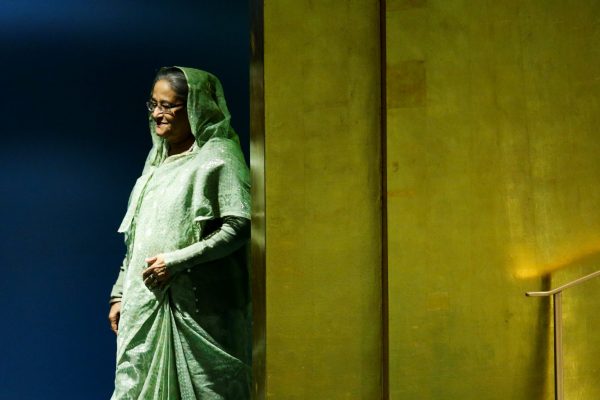Since the ruling Bangladesh Awami League (BAL) secured its second term through a controversial election boycotted by the opposition in 2014, the country has gradually slid towards authoritarianism. The Bertelsmann Foundation categorised the country as an autocracy in its 2018 report.
The space for dissent in Bangladesh has shrunk remarkably in the past five years. The media has either been muzzled or co-opted, and journalists tend to exercise ‘self-censorship’. Most recently the government enacted a draconian Digital Security Act in November 2018 that further curtails freedom of expression. The country has also experienced an exponential rise in extrajudicial killings and enforced disappearances — at least 456 people were killed and 83 people disappeared between January and November this year.
The largest opposition party, the Bangladesh Nationalist Party (BNP), has been in disarray for years. The leader of the party, three-time prime minister Khaleda Zia, was convicted on graft charges in February and October this year. She is now serving a 10-year prison term. The BNP alleges that she is a victim of a political vendetta. For the first time since 1991, she will not be on the ballot.
Until early October, the BNP was vacillating on whether it would contest the election. None of its demands, including reintroducing the caretaker government system to oversee the election, had been met. Kamal Hossain, an eminent jurist and one of the members of the 1972 constitution draft committee, eventually cobbled together an opposition alliance known as Jatiya Oikya Front (JOF). Hossain and his alliance, which includes the BNP, want to stop what he describes as the making of a ‘one-person state’.
The alliance is facing an uphill battle. Even after Prime Minister Sheikh Hasina’s assurance that opposition activists will not be arrested on frivolous charges, hundreds of activists and several candidates have been arrested since a dialogue between the Front and the Prime Minister took place.
The Election Commission is failing to ensure a level playing field as it turns a blind eye to the incumbent’s election code violations. But the opposition intends to continue their endeavour in the hopes that the election will act as a referendum on growing authoritarianism and poor governance.
The ruling party, on the other hand, is betting on its overwhelming grip on administration and law enforcement agencies, the weakness of the opposition and its success in the economic sector. Bangladesh has experienced an average of more than 6 per cent growth in GDP in the past decade and continues to achieve remarkable success in improving socio-economic indicators, including reducing child mortality rates.
But despite economic growth and overall poverty reduction, disparity has increased. Cronyism has become widespread, contributing to bloated project costs, corruption and inefficiency. This issue is most visible in the banking sector. In the past decade, scams in 14 banks cost the country Tk 225 billion (US$2.5 billion).
There are deep concerns over whether voters will be able to cast their votes freely or if they will turn out at all. First-time voters constitute almost one-fifth of the electorate. Many of them became voters in the past decade but did not have the opportunity to vote in 2014. Many of them also witnessed, if not actively participated, in two grassroots non-partisan youth movements that shook the government in 2018: the movement for the reform of the quota system in the public service in April and the ‘road safety’ movement in August.
These movements were quashed with heavy-handed measures. Pro-government activists were unleashed to quell the demonstrations. Sensing a potential backlash, the BAL is involving celebrities in their campaign and has nominated a few youth icons, such as the captain of the national cricket team who has support from across the political divide.
As for the role of the international community, there is little doubt that neighbouring India, which enjoys a close relationship with the Sheikh Hasina government, prefers the status quo. But the arrest and alleged torture of an internationally acclaimed photographer Shahidul Alam in August has made the political situation in Bangladesh well-known to the rest of the world, adding further pressure behind Western nations’ calls since 2014 for an inclusive election.
Until recently the international community seemed to have been preparing for a repeat of the 2014 election. But the founding of the Jatiya Oikya Front has provided an impression that there is now a formidable opposition. Could this lead to repercussions if the election is a staged show?
The forthcoming election is bound to be historic, offering stark choices to Bangladeshi voters. The big question is whether the incumbent will allow a free and fair election — one that may deliver it a defeat. But the consequence of the election will be more than simply the election of a new Bangladeshi government. It will determine the course of democracy in the county, or lack thereof.
Ali Riaz is a Distinguished Professor at the Department of Politics and Government, Illinois State University.


The portraying of Jatiya Oikya Front as a formidable opposition by writer came into logical fallacy as Jatiya Oikya Front got two of the 300 seats in election December 30,2018, . Most of his idea seems to be of his own making without any polling or scientific research.